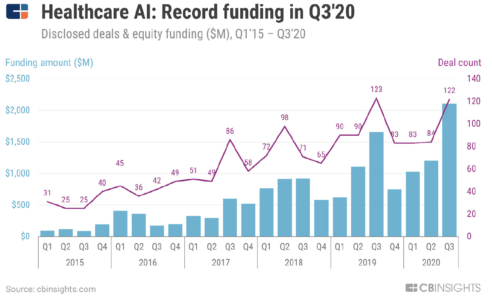Precision medicine approaches to disease treatment considers individual genetic variation and environment and lifestyle factors. The idea is to tailor treatment and prevention plans to an individual patient. The ability to analyze large data sets and predictive capabilities of artificial intelligence (AI) are the foundation of modern precision medicine. China’s large population and expanding data gathering technologies (that are unhindered by privacy matters) give the country a huge advantage.
In a parallel effort that also seeks to capitalize on China’s AI ecosystem, Beijing is investing heavily in precision medicine capabilities, which it views as a means to improve healthcare delivery and help China’s domestic pharmaceutical industry move up the value-added chain. In 2015, the Ministry of Science and Technology announced that China would invest $8.5 billion (renminbi [RMB] 60 billion) into precision medicine R&D over the next 15 years.
By comparison, the Obama Administration pledged $215 million for a similar U.S. initiative the previous year. Beijing’s precision medicine plan called for $2.8 billion (RMB 20 billion) from government expenditure and $5.7 billion (RMB 40 billion) from corporations.
China’s genomic sequencing industry already boasts several major, globally active firms. The largest is BGI, formerly Beijing Genomics Institute, founded in 1999 to contribute to the Human Genome Project. WuXi NextCODE (now Genuity Science), another sequencer that also runs an online data platform, raised $200 million in its third round of VC fundraising in November 2018 and was the first sequencing facility in China to receive accreditation from the College of American Pathologists to perform molecular diagnostic and genetic testing.
Both BGI and Genuity Science have benefited from acquisitions of U.S. firms and are licensed to perform testing in the US. China’s 13th Five-Year Plan discusses precision medicine in conjunction with other key technology areas such as semiconductors, robotics, and AI rather than in the context of healthcare policy, suggesting Beijing also views it as an industrial policy priority with potential means to help China’s healthcare sector move up the value chain. BGI’s role in supplying COVID-19 testing kits to the world is likely to reinforce Beijing’s view of precision medicine as a massive commercial opportunity in addition to a healthcare priority.

Chinese integration with US companies have spawned a wide variety of hookups. For example, Genuity Science recently erased all references to its WuXi NextCODE’s history. The US and Iceland offices of the genomics company were spun out of deCODE Genetics after it got acquired by Amgen, and its $400 million expansion into Ireland took place in late 2018, complete with the acquisition of Genomics Medicine Ireland.
Innovation in the US is driven mostly by the private sector. According to CB Insights, healthcare AI companies raised more than $2B in Q3’20, a new record for quarterly investment in the space.

